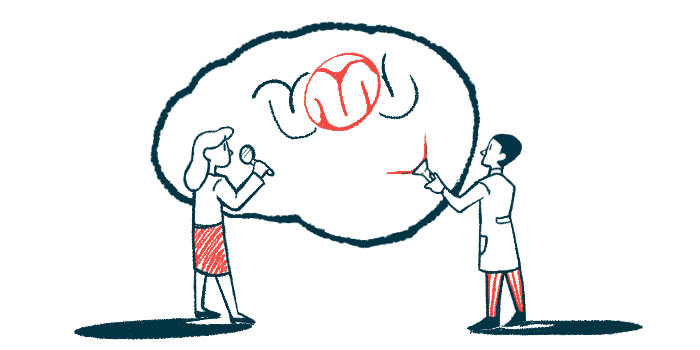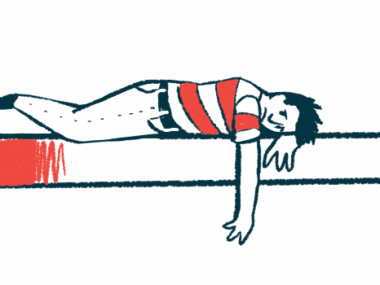PWS-causing mutations tied to unique psychiatric disorder patterns
People with PWS can have conditions such as autism or psychosis
Written by |

Different types of mutations that cause Prader-Willi syndrome (PWS) are associated with distinct patterns of changes in the brain and psychiatric disorders, a review study highlights.
“This state-of-the-art review integrates cutting-edge findings in genomics, neuroimaging, patient-derived neuronal models, and computational analytics, thus providing the most comprehensive synthesis available to date regarding the neurobiological underpinnings of PWS and its co-occurring psychiatric conditions,” the researchers wrote. The study, “Prader-Willi syndrome: Genetics, clinical symptoms, and model systems,” was published in Genomic Press.
PWS is caused by defects in a specific region of DNA on chromosome 15, known as 15q11-q13 or the PWS region. Normally, people inherit two copies of this region, one from each parent. In most people with PWS, the region inherited from the father is absent, known as a paternal genetic deletion.
Less commonly, PWS can be caused by maternal uniparental disomy (mUPD), meaning a person inherits two chromosome 15 from the mother and none from the father, rather than one from each. There are also rare instances where PWS develops due to an imprinting defect that inactivates the paternal chromosome 15.
People with PWS can have psychiatric disorders such as autism, which is marked by abnormal behaviors and atypical communication styles. Some also can develop psychosis, which is defined by hallucinations, that is, seeing or hearing things that aren’t there, and/or delusions, that is, having fixed beliefs with no basis in reality.
“Approximately [12%]-40% of individuals with PWS meet criteria for autism spectrum disorder, while a smaller subset, around [10%]-30%, may develop psychotic spectrum disorders in late adolescence or adulthood,” Shani Stern, PhD, the study’s co-senior author at the University of Haifa in Israel, said in a press release. “This co-occurrence creates a unique opportunity to study how genetic variations can lead to different psychiatric outcomes.”
What causes differences in psychiatric disorders in PWS?
The review highlights that patterns of psychiatric disorders tend to vary based on the type of underlying mutation.
“Patients with deletions tend to exhibit more autism-like traits, while those with maternal uniparental disomy show increased vulnerability to psychosis,” said Ahmad Abu-Akel, PhD, the study’s co-senior author at the University of Haifa.
Those with imprinting defects seem to manifest psychiatric features similar to those of people with mUPD.
This association between genetic and clinical profiles “offers invaluable insights into how specific genetic pathways might contribute to different psychiatric outcomes,” Abu-Akel said.
“Recognizing these [genetic-clinical profile] relationships will enhance patient stratification, guide therapeutic targeting, and ultimately refine treatment strategies to reduce misdiagnosis and improve long-term management,” the researchers wrote.
Brain imaging studies have suggested that the different types of PWS-causing mutations also lead to distinct changes in how the brain works. People with paternal genetic deletion tend to show more nerve cell loss in several brain regions including the prefrontal cortex, hypothalamus, and cerebellum. These regions are involved in decision making, reasoning, learning, language, hunger and sleep-wake cycle, and motor functions.
People with PWS caused by mUPD instead tend to show more widespread disruptions in connections between brain regions, especially in the prefrontal-limbic circuit, a network of regions that helps regulate thought, emotion, and behavior. Disruption of the prefrontal-limbic circuit is also a feature of schizophrenia, a mental health condition marked by psychosis.
“The neuroimaging findings provide a biological basis for understanding how genetics shapes brain development and ultimately influences psychiatric vulnerability,” Stern said. “This raises important questions about whether we might be able to identify early biomarkers that could predict psychiatric risk before symptoms emerge.”
The study points to several genes in the PWS region that may be involved in these brain abnormalities. One is CYFIP1, which helps regulate nerve cell activity and has been linked with autism and schizophrenia.
The researchers said studies using nerve cells derived from people with PWS caused by different mutations are important for determining the mechanisms behind psychiatric manifestations.
“The ability to generate neurons from patients with different genetic subtypes of PWS opens exciting possibilities for personalized medicine approaches,” Abu-Akel said. “We can potentially test how different medications affect neurons with specific genetic variations, moving us closer to precision treatments.”
Understanding how these psychiatric issues develop in PWS could have important implications for treatments.
“While current treatments … address specific symptoms, they fall short of directly targeting the genetic and neurobiological mechanisms underlying the disorder,” the researchers wrote. “Recent breakthroughs in gene-editing technologies and the development of patient-derived [cell] models offer promising avenues for understanding and treating PWS at its root. The challenge now lies in seamlessly integrating these discoveries into routine clinical practice.”






